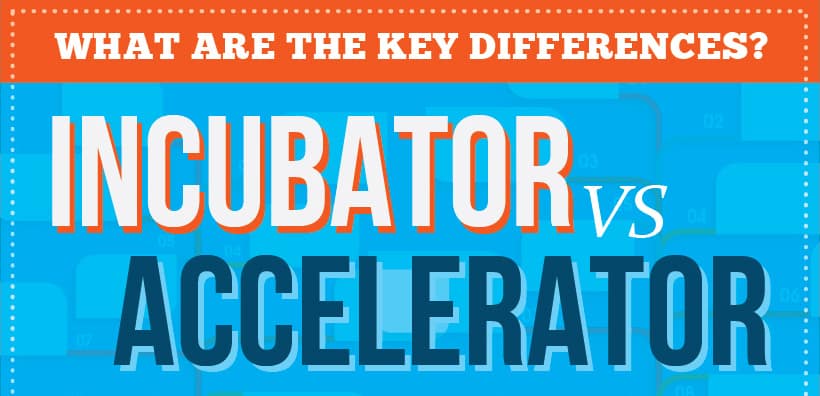

Instead of several years, it could be as quick as only a few months. In essence, startups can shorten the time it takes for them to build a stable business. Hence, accelerators focus on hastening the growth of the startups. Not only that, but they also have a viable business model. Startups in this program already have a Minimum Viable Product (MVP). But they differ in implementation and purpose. Startup accelerator programs share similarities with incubation, such as providing services and resources. By that time, they should be attractive to venture capitalists and other investors.


As such, they do not take a stake in equity ownership.įor funding, they can do one thing during the incubation period. Investment Capitalīusiness incubators, in general, do not provide funds to startups. Here is a list of small business incubators in the United States. As each one may have specific requirements, it is best to refer to local incubators. In the United States, there is an estimated 1,400 business incubators. A hospital sponsoring an incubator will likely favor health products or technology startups. Government entities, for instance, favor startups that can improve the business ecosystem. Much of this also has to do with which entity is sponsoring the incubator. Among the most important ones are the local economy and ecosystem. Getting accepted into a program, for sure, depends on many factors. Hence, it is a good thing that incubator programs are much less competitive. Application ProcessĪpplying for a slot in a startup accelerator program is brutal. While most startups take at least one or more years, some other companies could wrap things up in six months. At any rate, a typical incubation period may last up to five years. Startup accelerator programs, in this regard, can be intense. DurationĪlthough incubator programs provide many benefits, it is not an intensive environment. Startups, too, can be ready for venture capital investment. With these benefits and guidance, becoming self-sufficient becomes an attainable goal.

Much of their focus during this time is determining product-market fit. But one thing they make sure of is mentoring the entrepreneurs.Īt the start of the program, the startups are in the business idea stage. Instead of hastening the growth of very early-stage companies, they help as needed.
#Incubator vs startup full#
Incubators provide a full range of services that startups need to get started. Private companies (usually venture capital firms).Universities, colleges, and other public institutions.Incubators exist for one purpose – to help entrepreneurs and startups develop their businesses.īusiness incubators are organizations sponsored or funded by: But they differ by their purpose.Īt this point, it is best to know what each one is so you can choose which one is best for your startup. On the surface, accelerators and incubators may appear the same. They mentor startups, provide resources and connect them with big-time investors and capitalists. In exchange, they either have to pay loan interest or offer equity ownership.īusiness incubators and startup accelerators are different. Among the most common sources of capital they look at are:Īlthough those are viable sources, startups can only receive money from them. In doing so, they overlook business incubators and startup accelerators. On far too many occasions, startups focus on the money aspect as they seek funding. So, which one is more suitable for you? Overview of Business Incubators and Startup Accelerators Although similar in many ways, they are also not the same. Other than the money you already have, how else are you going to fund your startup? While pondering options, you might have come across incubators and accelerators.


 0 kommentar(er)
0 kommentar(er)
